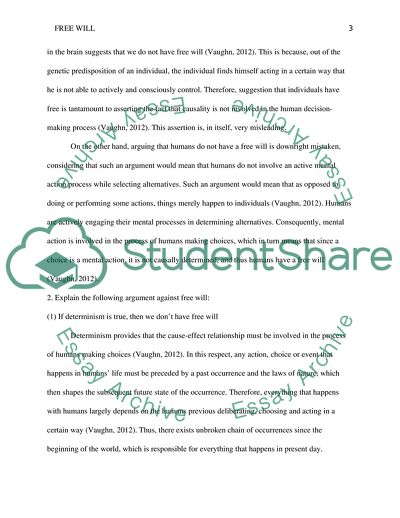Cite this document
(Free Will, Fulfilling the Desires of the Individual Essay Example | Topics and Well Written Essays - 1250 words, n.d.)
Free Will, Fulfilling the Desires of the Individual Essay Example | Topics and Well Written Essays - 1250 words. https://studentshare.org/psychology/1823823-free-will
Free Will, Fulfilling the Desires of the Individual Essay Example | Topics and Well Written Essays - 1250 words. https://studentshare.org/psychology/1823823-free-will
(Free Will, Fulfilling the Desires of the Individual Essay Example | Topics and Well Written Essays - 1250 Words)
Free Will, Fulfilling the Desires of the Individual Essay Example | Topics and Well Written Essays - 1250 Words. https://studentshare.org/psychology/1823823-free-will.
Free Will, Fulfilling the Desires of the Individual Essay Example | Topics and Well Written Essays - 1250 Words. https://studentshare.org/psychology/1823823-free-will.
“Free Will, Fulfilling the Desires of the Individual Essay Example | Topics and Well Written Essays - 1250 Words”. https://studentshare.org/psychology/1823823-free-will.


